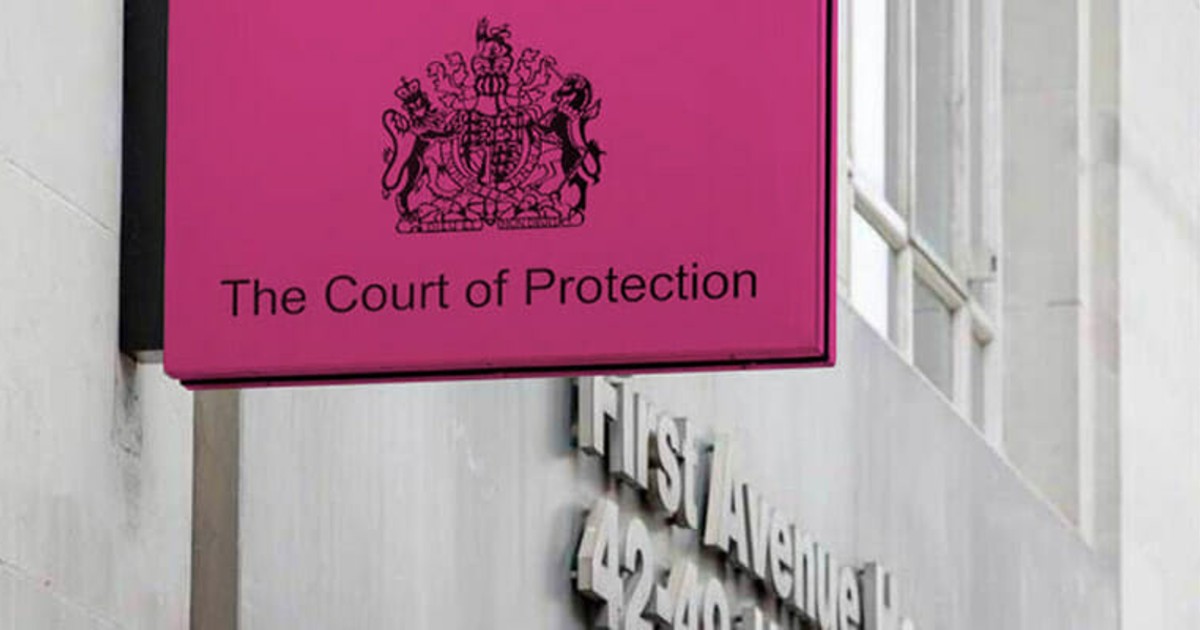
‘I want to die trying to live’, say British teen
A British teenager who wants to live and a UK hospital who wants her to die are locked in a dramatic dispute over her future.
ST is a bright 19-year-old girl suffering from an extremely rare mitochondrial disease which causes progressive degeneration of all of her bodily systems – except her brain. After contracting Covid-19 in August last year, she collapsed and was admitted to an intensive care unit where she survives with the help of a ventilator and dialysis. Her condition has continued to deteriorate. Communication with her is possible but difficult.
Supported by a loving family, she is convinced that she could be cured with an experimental treatment in Canada. Her hospital says that this is delusional. Its doctors say that she has only days or weeks to live, months at most, and that the trans-Atlantic trip could kill her anyway. They want to remove her dialysis machine and transfer her to palliative care — where she will die in a few days from kidney failure.
In a judgment released on Wednesday, Mrs Justice Roberts, of the Court of Protection, ruled in favour of a death sentence (University Birmingham NHS Foundation Trust v ST & Ors). Rejecting the opinion of two psychiatrists, the judge found that ST is mentally uncapable of making decisions for herself because she does not believe what hospital doctors say about her condition.
“In my judgment… ST is unable to make a decision for herself in relation to her future medical treatment, including the proposed move to palliative care, because she does not believe the information she has been given by her doctors.”
ST knows that the experimental treatment might fail, but she declared clearly: “This is my wish. I want to die trying to live. We have to try everything”. The judge was being asked to determine whether her fully autonomous, well-informed, rational decision should be respected. In page after page after page, she parsed the meaning of “mental capacity”. Her reasoning was subtle and her distinctions were fine, but the long and the short of it was this: one cannot be of sound mind if one disagrees with expert doctors.
As one of the hospital’s doctors told the court, ST is unable to weigh up the pros and cons of “a dignified death”. As such he believes that she is suffering from a delusion which derives from a false reality in that she cannot contemplate her own death. “We need to write the menu for her to choose,” he said. “We need to offer treatments that are appropriate and available.”
The judge agreed.
“I find on the balance of probabilities that ST’s complete inability to accept the medical reality of her position, or to contemplate the possibility that her doctors may be giving her accurate information, is likely to be the result of an impairment of, or a disturbance in the functioning of, her mind or brain.”
David Albert Jones, of the Anscombe Bioethics Centre, in the UK, severely criticized the judge’s analysis of the case:
… a vulnerable patient’s disagreement with her doctors is being used against her as a means not only to take away her voice but further to deny her the right to litigate against the decision to take away her voice. Most disturbingly of all, her wish to continue to receive life-sustaining treatment, such as dialysis, is not only being ignored, but that very wish is being seen as a reason to deny her dignity as a mentally capable adult. This is a lethal form of paternalism.
